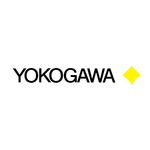
Yokogawa Acquires Insilico Biotechnology, Developer of Innovative Bioprocess Digital Twin Technology
- Enabling solutions for biopharmaceutical development and production -
TOKYO--(BUSINESS WIRE)--#Bioprocess--Yokogawa Electric Corporation (TOKYO:6841) announces that it has acquired all shares of Insilico Biotechnology AG (“Insilico”), a Stuttgart, Germany-based developer and provider of bioprocess software and services. Fostering the development of the bioeconomy is one of the priority issues within Yokogawa’s sustainability goals, and in line with that the company aims to leverage this acquisition to build total bioprocess solutions that support biopharmaceutical development through to manufacturing.

Driven by developments such as the COVID-19 pandemic, demand continues to grow for biopharmaceuticals that have fewer side effects and can be used to treat patients with rare and intractable conditions. In contrast to the production of chemically synthesized general-purpose pharmaceuticals, the overall cost of biopharmaceuticals is higher, and the complex cell cultivation process required to efficiently and stably obtain the target proteins demands rigorous quality control measures that pose significant challenges with mass production.
The cells cultivated in a bioreactor are immense in number. As each of these cells generate the material that form the active ingredients in pharmaceuticals, it is necessary to monitor their individual metabolic reactions. The real-time visualization and analysis of any environmental factors such as changes in pH and dissolved oxygen concentration are also very important. As such, it has been extremely difficult to carry out cell production by controlling the complex cell reaction systems with a large number of set parameters.
Insilico’s digital twin technology uses an advanced hybrid model formed from a mechanistic model*1 of the unique characteristics of an intracellular metabolic network and a data-driven model*2 constructed from process data using the machine learning process. As well as drastically accelerating what until now has been a multiple-year development process, prediction and simulation also enable the acquisition of a deep understanding of the metabolism process. And given that this solution enables the construction of metabolism models for bacteria and many other kinds of cellular organisms, it can also be used in a wide variety of applications related to foods, chemicals, and other products that utilize biotechnology.
In manufacturing too, Insilico’s digital twin technology enables the real-time analysis of process data, which allows for the constant prediction of cultivation performance, the soft sensing of nutritional components that cannot be measured directly, and the early detection of process abnormalities and provision of guidance to operators. By deploying this problem-solving technology, product quality can be stabilized, which contributes to efficient mass production.
Klaus Mauch, CEO of Insilico Biotechnology AG, says: “There are high expectations for this fusion between our cutting-edge digital twin software technology for bioprocesses and Yokogawa’s pharmaceutical production system solutions. I believe that through Yokogawa’s global network we will be able to expand our sales channels and make a great contribution to the biopharmaceuticals industry.”
Hiroshi Nakao, a Yokogawa vice president and head of the company’s Life Business Headquarters, says: “I firmly believe that the innovative digital twin technology offered by Insilico, which has a proven track record with major biopharmaceutical companies, will accelerate digital transformation in the bioprocessing industry. We will leverage our engineering technology and develop our business with a view to the commercialization of bioprocesses.”
Overview of Insilico Biotechnology AG
- Established: 2001
- Location: Stuttgart, Germany
- CEO: Klaus Mauch
- Number of employees: 29
- Business: Development of digital twin-based software and provision of services for bioprocesses
- Website: https://www.insilico-biotechnology.com/
*1 Mechanistic model: A model that is developed based on the fundamental principles of the relevant reaction or mechanism, so a deep knowledge and understanding of the process is required to construct the model. The model that is obtained as a result has variables and parameters that can be physically interpreted, and advanced generalization is possible. However, a high precision physical model requires high development and computation costs.
*2 Data driven model: In contrast to mechanistic models, no knowledge of the fundamental principles of the relevant process is required. The advantages of this include simple implementation and relatively low development and computation costs. However, disadvantages include difficulties in interpreting data after forecasting or simulation is performed and generalizing results. Requiring large volumes of process data to construct the model is another drawback of this technique.
About Yokogawa
Yokogawa provides advanced solutions in the areas of measurement, control, and information to customers across a broad range of industries, including energy, chemicals, materials, pharmaceuticals, and food. Yokogawa addresses customer issues regarding the optimization of production, assets, and the supply chain with the effective application of digital technologies, enabling the transition to autonomous operations.
Founded in Tokyo in 1915, Yokogawa continues to work toward a sustainable society through its 17,500 employees in a global network of 119 companies spanning 61 countries.
For more information, visit www.yokogawa.com
The names of corporations, organizations, products, services and logos herein are either registered trademarks or trademarks of Yokogawa Electric Corporation, Insilico Biotechnology AG, or their respective holders.
Contacts
Media inquiries:
PR Section, Integrated Communications Center
Yokogawa Electric Corporation
E-mail: Yokogawa-pr@cs.jp.yokogawa.com
Editor Details
-
Company:
- Businesswire
